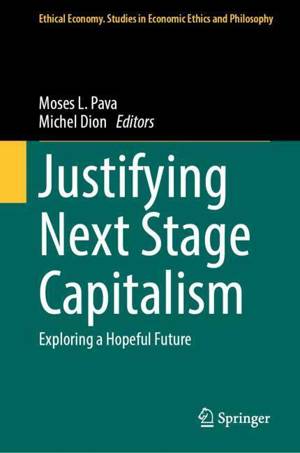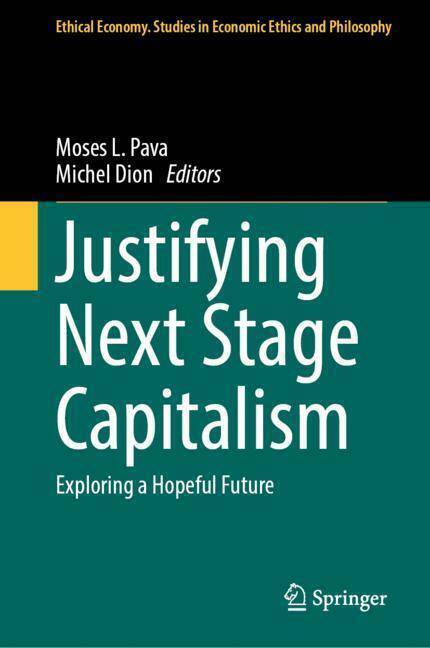
- Retrait gratuit dans votre magasin Club
- 7.000.000 titres dans notre catalogue
- Payer en toute sécurité
- Toujours un magasin près de chez vous
- Retrait gratuit dans votre magasin Club
- 7.000.0000 titres dans notre catalogue
- Payer en toute sécurité
- Toujours un magasin près de chez vous
Justifying Next Stage Capitalism
Exploring a Hopeful Future
Description
This book explores emerging justifications of capitalism based on the views of academics from around the world in business. The traditional justification for capitalism has been that it is the one system that produces the most wealth with the least cost for the most people. While this justification no longer has the taken-for-granted status it once enjoyed, it remains the dominant and mainstream argument in favor of capitalism, especially in the United States. Despite capitalism's production of human wealth, it is implicated by trends such as income and wealth inequalities, climate change caused by the burning of fossil fuels and racism, sexism and other forms of discrimination. This volume asserts that in this age of complexity, inequality, and ecological instability, capitalism's future depends on our ability to broaden the justifications for it to include a much more elaborate list of values beyond wealth and efficiency. It does so without claiming tologically or empirically prove that capitalism is the best of all possible economic systems, but rather to explore a new and hopeful future for the system; Next stage capitalism. Written by an international group of scholars from various disciplines, this book is of great interest to those who work in philosophy, sociology, political science, history and theology and religious studies.
Spécifications
Parties prenantes
- Editeur:
Contenu
- Nombre de pages :
- 434
- Langue:
- Anglais
- Collection :
- Tome:
- n° 68
Caractéristiques
- EAN:
- 9783031580635
- Date de parution :
- 29-05-24
- Format:
- Livre relié
- Format numérique:
- Genaaid
- Dimensions :
- 156 mm x 234 mm
- Poids :
- 807 g

Les avis
Nous publions uniquement les avis qui respectent les conditions requises. Consultez nos conditions pour les avis.





